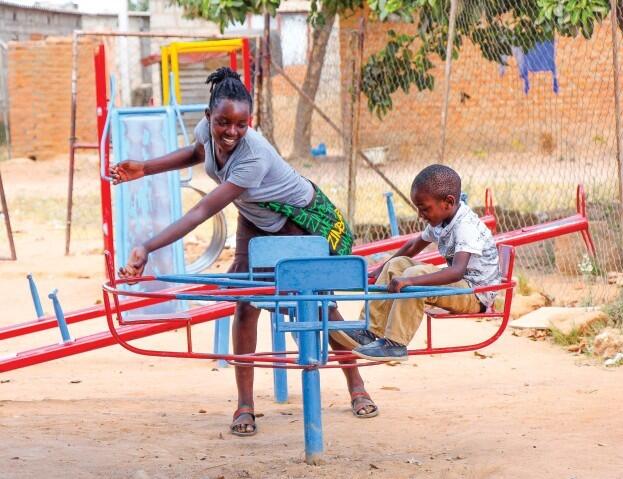At 22, most people are trying to understand what it means to be a young adult while enjoying their newly acquired sense of freedom and adventure. For Clara William, however, it is a very different reality. Not only is she a widow and mother to a 4-yearold son, Clara is also the guardian of her 17-yearold brother.
“It's just the two of us [her brother and her] and nobody else,” she states softly. “We are each other's support and allies.”
Clara's father died some years back and her mother lives in the rural areas. And even though there is just a five-year age difference between the two, Clara serves as both mother and father to her brother, whom she started living with two years ago. But while the two are very close, they have also been very conscious of the fact that they are siblings of the opposite sex.
“At first, we were very embarrassed of each other and found it difficult to share any private details about ourselves,” says Clara.
Even though her brother was right in the middle of puberty at the point, she says she found it inappropriate to ask him about anything personal. But PCC taught her differently. Through the programme, which she attended as a guardian, she learnt the importance of having open discussions about SRHR with her brother and that it was important to ensure that young people take responsibility in their sexual relationships. And knowing that no one would help her brother with this knowledge, she decided it was time to have more open conversations with him.
“Sharing information with my brother about the PCC sessions encouraged him to open up to me,” she says. “I was surprised to find out he had been troubled by body changes that he was experiencing but had been shy to tell me about them.”
When he started becoming comfortable with Clara, he even referred a friend of his who had started displaying symptoms of unwellness after having unprotected sex with a girl. Clara referred her brother's friend to the clinic providing adolescent care in the area as she suspected he might have an STI. As a result, he got medical assistance at the clinic and soon recovered.
“My brother has become more open with me ever since the incident with his friend,” she says.
He has even introduced Clara to his girlfriend. Clara's brother has also grown a deep interest in PCC, so much to the extent that he goes through Clara's session notes when he has time. Unfortunately, he is unable to become a member because he works at one of the area's bottle stores and doesn't get the requisite time off to attend sessions. She confides that at some point, her brother abused drugs but that he has since stopped after she advised him of the dangers of drug abuse, yet another area which the PCC sessions cover.
As Clara talks, she seems at ease, demonstrating how comfortable she has become being the parent that she is to her brother.

“His girlfriend is now free to contact me and tell me what is going on in their relationship,” she observes. “We have open conversations together.”
For Clara - as a widow, single mother and guardian - PCC has been more than just a programme focusing on parent to child communication. It has also improved other aspects of her life, including her entrepreneurial skills. As someone who has been part of the Sista2Sista programme and PCC, Clara says she has benefitted from various entrepreneurship trainings.
The environment in which young people are making decisions related to Sexual and Reproductive Health is also rapidly evolving. Studies show that many parents face challenges in being prepared to have discussions with young people about relationships, physiological development and sex. Parents find themselves without adequate information and tools for dialogue, and often have limited knowledge of Adolescent Sexual Reproductive Health and the needs of young people. Often this leads to a breakdown of communication between adolescents and parents.
The Parent-Child Communication (PCC) programme was designed and piloted with the intention of increasing the comfort space of parents and adolescents in discussing sensitive issues surrounding sexuality and reproductive health. The programme is supported by the Health Development Fund under the banner of the UNFPA Safe Guard Young People Programme (SYP) which is co-funded by the Swiss Agency for Development and Cooperation. The HDF is funded by the governments of Britain, Ireland, Sweden and the European Union.
Although Clara has not yet ventured into a business of her own, she says the trainings have given her ideas on how she could start one when she is ready. She adds that Spiwe Mpofu, her mentor under the PCC programme has played a pivotal role in helping her cope with all the roles she is responsible for. “Spiwe is the first person I go to when I am faced with challenges and she has been very supportive, even outside her role as mentor,” says Clara. “I can't thank PCC enough for coming to our area.”


